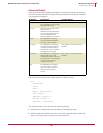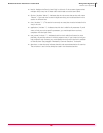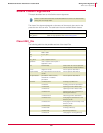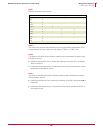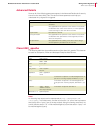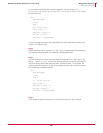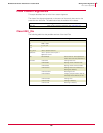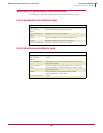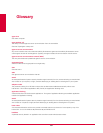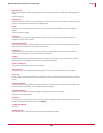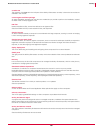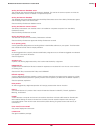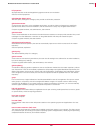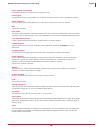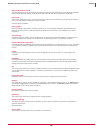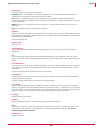
187
Glossary
agent host
See client computer.
agent wakeup call
The ability to initiate agent-to-server communication from the server-side.
See also SuperAgent wakeup call.
agent-to-server communication
Any communication that occurs between ePolicy Orchestrator agents and the ePolicy Orchestrator server
where agents and server exchange data. Typically, the agent initiates all communication with the server.
agent-to-server communications interval (ASCI)
The time period between predefined agent-to-server communication.
aggregated view
A view of identical items grouped into a single entity.
alert
See also event.
ASCI
See agent-to-server communication interval.
attack
An attempted breach of system security. Attacks range in severity from low, someone having an unauthorized
view of data on your system, to high, someone destroying or stealing data or shutting down your system.
Adaptive mode
The protection setting for a HIP client where rules are learned and added automatically without user
intervention. This mode is applicable to IPS, firewall, and application blocking rules.
application blocking
A feature that allows or blocks certain applications. Two types of application blocking are available: application
creation and application hooking.
attack
An attempted breach of system security. Attacks range in severity from low (someone having an unauthorized
view of data on a system) to high (someone destroying or stealing data or shutting down a system).
back orifice
A remote administration tool that can provide unwanted access to and control of a computer by way of its
Internet link. It runs on Windows 95, Windows 98, and Windows NT.
backdoor
A planned security breach in an application that can allow unauthorized access to data.



